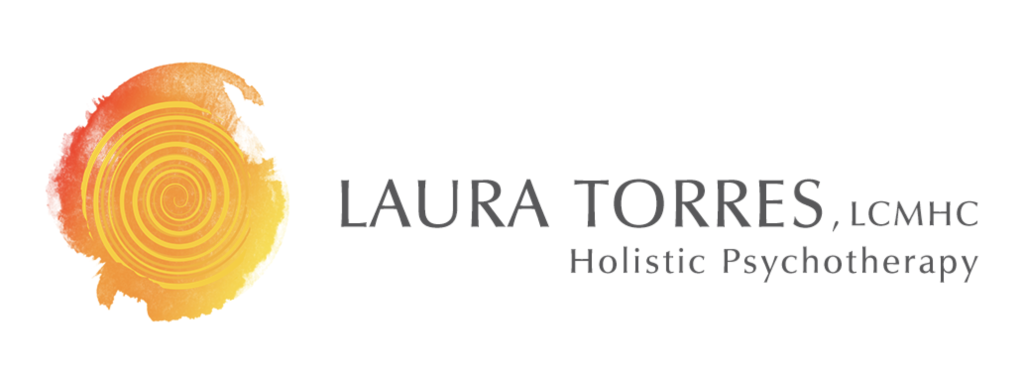One of my mentors recently said to me “Don’t look in the rearview mirror, focus on where you’re going”–he said this as I was giving myself a hard time for some of the choices I had made over the past year. A couple of things stood out to me about this: a) I have a tendency to focus on the areas where I’ve fallen short and b) I’ll go in the direction of wherever I’m focusing. So if I’m reflecting and focusing on my mistakes and short-comings, I’m going to keep falling short! I do feel it’s valuable to look in the rearview mirror from time to time AND I realize it’s incredibly important to have a balanced view–or perhaps even a view that’s positively biased. Since this is a time where many of us are reflecting and looking ahead, I wanted to share this story and several tips for making sure our focus is really moving us in the direction we want to be moving.
I think it’s valuable to reflect on the past year. Instead of focusing on our short-comings, however, as our brain will want to do, I want to encourage you to focus on the things you accomplished, things you feel proud of, the ways you’ve grown as a person. This helps set the feeling tone for looking ahead by accessing successes from the past. When I look back at the past year and don’t feel like I’ve accomplished anything or perhaps I’m in a worse place than I was the previous year, how motivated am I going to be to set intentions for the upcoming year? Not very! Especially if I had set goals for the previous year and didn’t follow through. When you look back and the ‘negative things’ are so big that it’s hard to see any positives, try reframing the negative experiences. Reframing changes the emotional meaning you give to a situation and can turn something that feels negative into a growth-oriented or resourcing experience. Here’a an example: Situation: I took a new job I’m not happy with. Negative frame: I made the wrong decision and now my career is even less fulfilling. Things are worse and I made a mistake that I can’t undo. Reframe: I’m so much clearer now on what I want and what I don’t want in a job and in this way, I’m much closer to having a fulfilling career. If I had stayed at my old job, I wouldn’t have this important information. Grab a journal and take some time to reflect on the past year. Make sure to focus on the gains and things you’re grateful for and reframe the challenges.
Sometimes our inner critic is so loud as we reflect that it can be hard to recall the positives, not to mention reframing challenges. Reflection, goal setting, and making changes can really fire up our critic. Sure, sometimes our critic motivates us to move forwards but it’s typically not long-lasting when we’re motivated out of fear. Long-lasting, internalized change comes from living into who we want to be–from touching in on this felt sense and moving towards it–not from beating ourselves up for not being there yet. But we all do this, right? As I mentioned, it’s my hope that your reflection process is filled with compassion, pride, and gratitude and for your intention setting process to be energizing and uplifting. So what can we do when our inner critic is so loud we can’t hear anything else?
Here’s a simple phrase that I like to use when I find my inner critic is giving me a hard time for things from the past: ‘This is exactly where I’m supposed to be’. In this way you’re bringing some acceptance and compassion to where you’re at. When we’re critical of ourselves, it’s like we’re telling ourselves that we should be better or different or more. Take a moment and recall a time you’ve been critical. Notice what happens on the inside physically? For me, my body feels heavier (not in the pleasant, grounded sense), I feel less energized and less motivated. Now try this on–say to yourself ‘I am exactly where I need to be’. Breathe it in. Say it several times if needed. When I am able to take this phrase in, I notice that my breathing deepens, I feel spaciousness in my chest, I feel naturally curious about my situation versus critical of myself. What’s getting in the way of me moving towards my goal? Is it this goal really important to me? Why is it important? When our inner critic is in the driver’s seat, it’s tough to access this kind of curiosity. Or critic isn’t bad, but it is most concerned about keeping us safe from any physical or emotional threat–not in helping us to grow, thrive and live wholeheartedly. And as we contemplate change, which inherently involves some risk, our critic tends to speak up.
Next tip for making sure our intention setting practice is really moving us towards our intentions is to get clear on the why behind our goals. Why is this important to me? This helps us to touch into the felt sense. When we focus on the why of the goal versus the actual content, we connect to our felt sense of what it will feel like when we’ve achieved what we want to achieve. Not only is touching in on this feeling state a powerful motivator, but it starts to make feeling this way a little more accessible. When we can vividly imagine what it will feel like to be where we want to be, it has the same impact on our brain as if we’re already there. Often times when we’re creating goals, we’re actually, ironically focused on where we don’t want to be. For example, if we’re wanting a new job, we might be focused on getting out of the miserable work situation we’re in. And again, although this is compelling, it’s not energizing and we’re not tapping into the felt sense of how we want to feel, we’re tapping into the felt sense of how we don’t want to feel–which just gets us more of what we don’t want. This is why I love vision boards because you get to spend several whole hours focusing on where you want to be versus where you don’t want to be.
Lastly, it can be incredibly powerful to share your reflections and intentions with someone you know and trust. Each year around this time, one of my good friends and I set up a skype date to share our reflections on the past year and intentions for the coming year. Not only does it help us hold ourselves accountable when we our share goals with some one else, but it’s also incredibly powerful to speak our intentions aloud and to be witnessed by someone. The job of the listener isn’t to evaluate how realistic our goals are (unless you want that type of feedback) but rather, to listen and hold space for our sharing–then we can offer the same to them. If there’s no one you feel comfortable sharing with, go ahead and set a date with yourself, light a candle and read your intentions aloud. When we write them, speak them, and hear them spoken, they become an even more powerful catalyst for change.
So if you haven’t reflected or set intentions, I encourage you to try it out using the tips above. The new moon is coming up January 27, 2017 and is a great time to set intentions. So grab some magazines and plan a date with a friend to create visions boards and share with one another. Or create a solo date where you dive deep into your reflection and intention setting then share with someone you trust. If you’re ready to get started but not sure where to start, here are several great tools to get you give you some structure:
Word of the Year with Christine Kane
Intention Setting with Sarah Prout
Challenge: Set aside some time to reflect on the past year, focusing on things you’re proud of or grateful for and reframing challenges. Then dive into setting intentions for the coming year. Write them down in a place where you’ll be able to access them at this time next year and revisit them regularly. If you’re really not into goal setting, try simply setting an intention for the day each day to help you stay on track.
Affirmation: I easefully create the changes I want to see in my life.


4 Comments
Great post! In the recent past I have witnessed or been connected to two incidences of a car driving too close and both cars losing the side review mirrors (neither of them my cars). Each car was a different side of the car. After the second one, I asked myself what the message is for me about looking in the review mirror. So your blogpost is very timely for me. I did wonder whether I was to stop looking back. Or is it a message at a bigger, more national level about looking forward?
And on one other note, another way to look back and reframe when the critic jumps in is to ask, “Was there any incidence where I was successful or did move the mark or did follow through, even once?” When you find it, inquire more deeply. “What was it about me, the circumstances, the people, the timing, the environment that made it possible for me to follow through?” “What did I value about myself then? How did my actions bring me closer to ‘me’? How can I create more of those conditions this year? Hang with more people like that? Step into circumstances like that more often? And then do that!
Thanks for your words, your encouragement and your heart!
Interesting synchronicity–in the least, it sounds like an important message to be paying attention to where you’re looking 😉 And I love your idea of looking for the times where you actually did the thing that your critic is saying you never do and build on that experience vs. focusing on what didn’t go well. And what poignant and thought provoking questions you’ve offered–thank you for contributing to the dialogue!
Excellent!
Thanks for your feedback, Taveta–I’m so glad you enjoyed it!